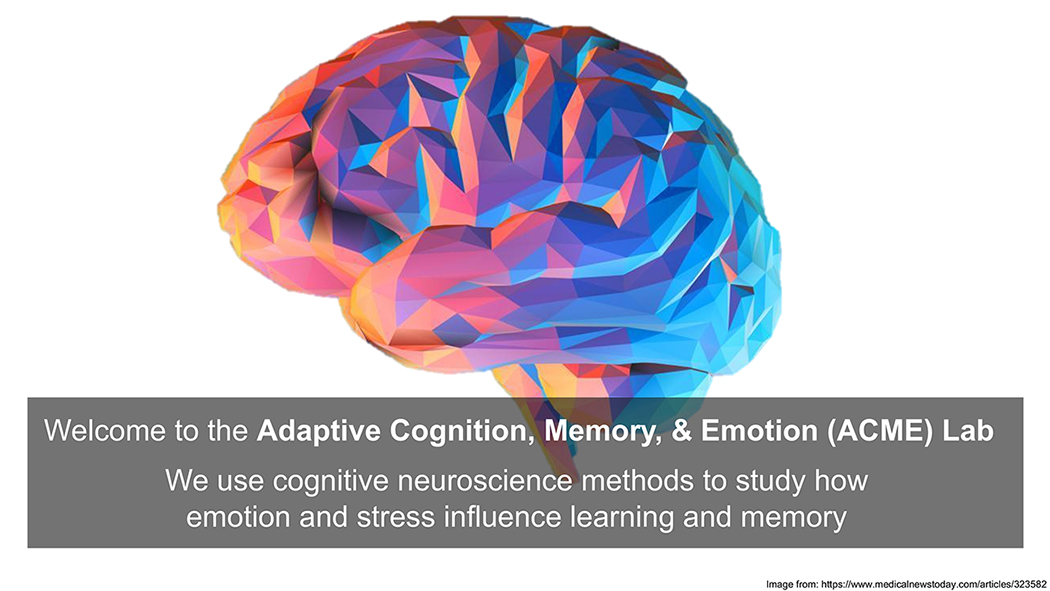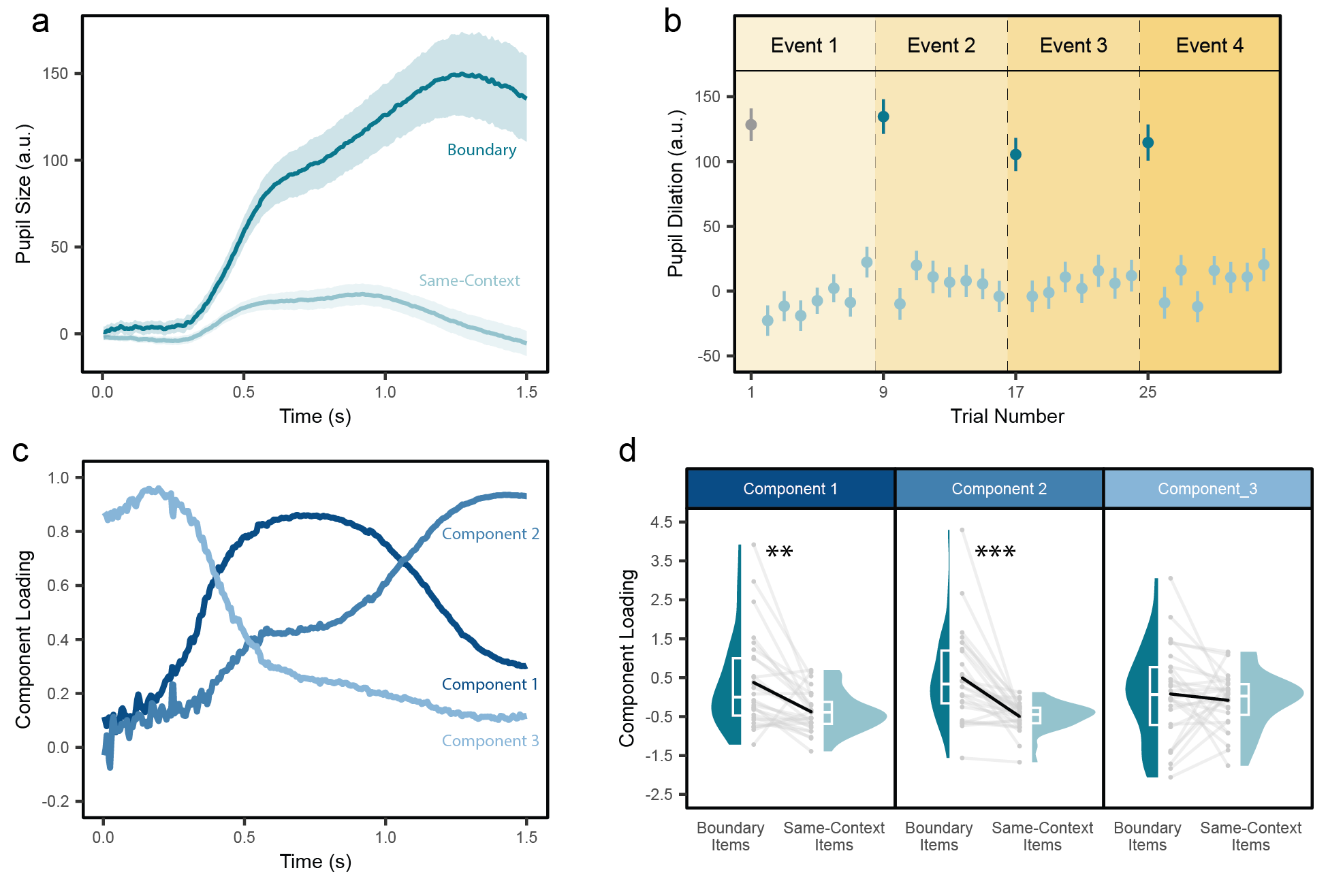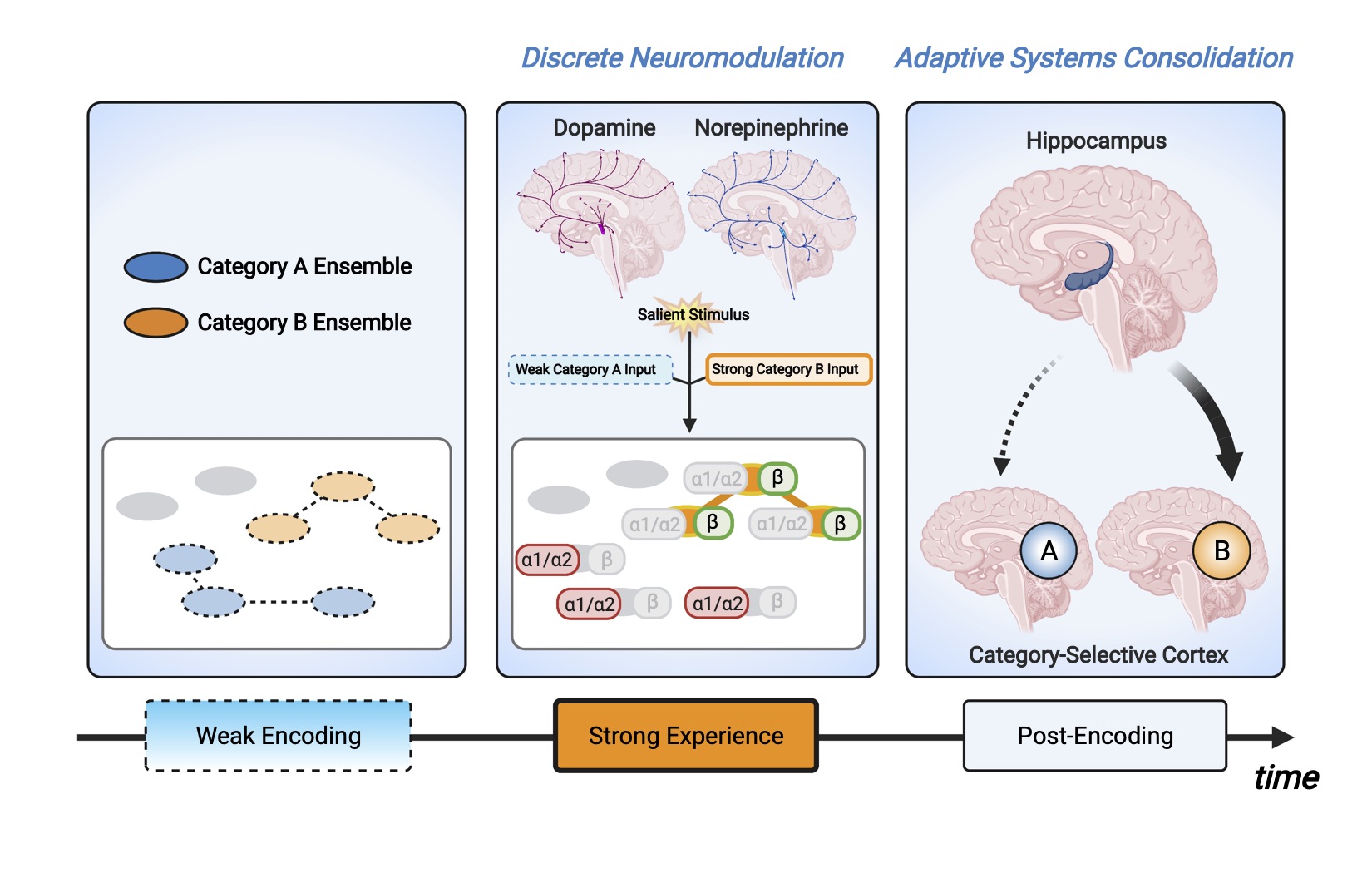

Dynamic arousal and mental states construct memories of time and events
Even though our lives unfold continuously, our personal narratives don’t strictly mirror this constant stream of information. Instead, our memories reflect the passage of discrete and meaningful episodes, much like chapters in a book. Our work shows that dynamic fluctuations in arousal - physiological states characterized by alertness and mental stimulation – promote this transformation of continuous experience into individualized and meaningful memories. In our lab, we use eye-tracking techniques to measure pupil size, an index of arousal, and eye gaze, an index of where attention is directed, to study how memories are formed and structured. Currently, we are examining how stress and emotional experiences influence these memory-structuring processes as well as our subjective sense of time.
Neuromodulators energize attention and behavior
The pupil offers a portal into how arousal shapes the way we think, learn, and behave. Yet
arousal is a complex and multifaceted construct, leaving many open questions about the
relationship between pupil size and different neurocognitive processes. Exciting new research
has linked pupil measures to activity in the locus coeruleus (LC), providing a unique opportunity
to study a brain region that long seemed inaccessible in human research. In our lab, we examine
how pupillometry reveals the role of the locus coeruleus-norepinephrine
(LC-NE) system in energizing attention and amplifying mental selectivity.
Emotion as the grammar of human memory
As time unfolds, even the simplest changes in the world, such as crossing through a doorway, can lead individuals to perceive a 'boundary' between adjacent events. Interestingly, these context shifts (e.g., spatial change) also have reliable consequences for how memories become organized later on. In the lab, we examine how the ebb and flow of experience - including changes in our thoughts, feelings, and surroundings - guide the creation of new 'episodes' in memory; that is, unique memories linked to a specific time and place. Like changes in the external world, fluctuations in our internal world, such as our emotional states, also have a powerful effect on memory. Recently, we developed a new emotion-tracking tool, known as the Emotion Compass, to show that emotion dynamics help organize and package experiences into memories of distinct and meaningful events. We believe this has important implications for the assessment and treatment of different affective disorders, including depression and PTSD.

Harnessing arousal processes to enhance important memories
In everyday life, an initially unremarkable experience may become memorable if it acquires significance in the future (e.g., eating a bland sandwich at lunch but then getting food poisoning later that day). Indeed, recent work shows that memory for weakly encoded neutral items is preserved if those concepts are subsequently paired with an arousing stimulus, such as electric shocks. This finding points to a promising intervention for boosting memories prone to forgetting. But the use of aversive or rewarding stimuli is impractical for boosting learning both in educational settings and in everyday life. We are currently investigating if we can harness these memory-enhancing effects of arousal using non-emotional manipulations, such as mental effort and novelty. We are especially interested in whether these types of manipulations can recruit noradrenergic and dopaminergic processes to protect vulnerable memories from fading away.